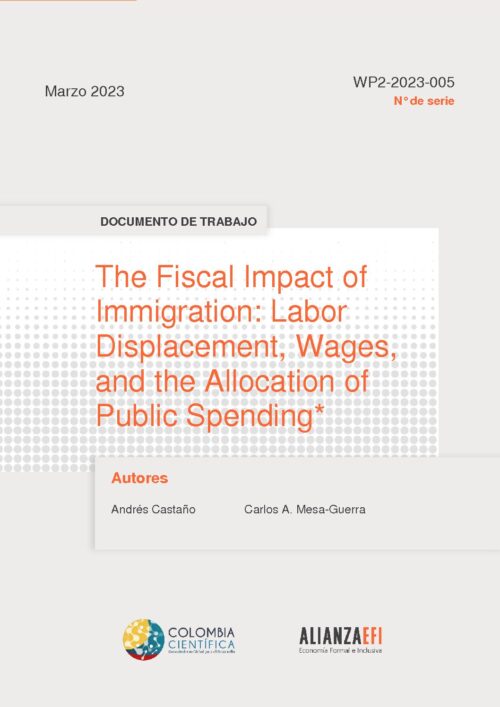We reexamine the effect of immigration on public finances by accounting for second-order effects. We exploit exogenous variation in immigration across Colombian metropolitan areas between 2013 and 2018, resulting from the large increase in Venezuelan immigrants, and instrument immigrants’ residential location using preexisting settlement patterns and the distance between origin-destination flows. Our findings indicate that immigration did not reduce natives’ average fiscal contributions. Exploring the mechanisms in place, we document that immigration had no effect on employment, average wages in the upper half of the wage distribution, or hours worked that would have explained changes in labor-driven tax contributions. In addition, immigration did not trigger a decline in property values or changes in the composition of local public spending. The results suggest that general equilibrium effects are not sufficiently large enough to induce changes in fiscal contributions.
Autores:
- Andrés Castaño
- Carlos A. Mesa-Guerra
Palabras clave:
- Employment
- Immigration
- Property values
- Public finances
- Public goods
- Wages
Categorías:
- Proyecto 2
- Documentos de trabajo
